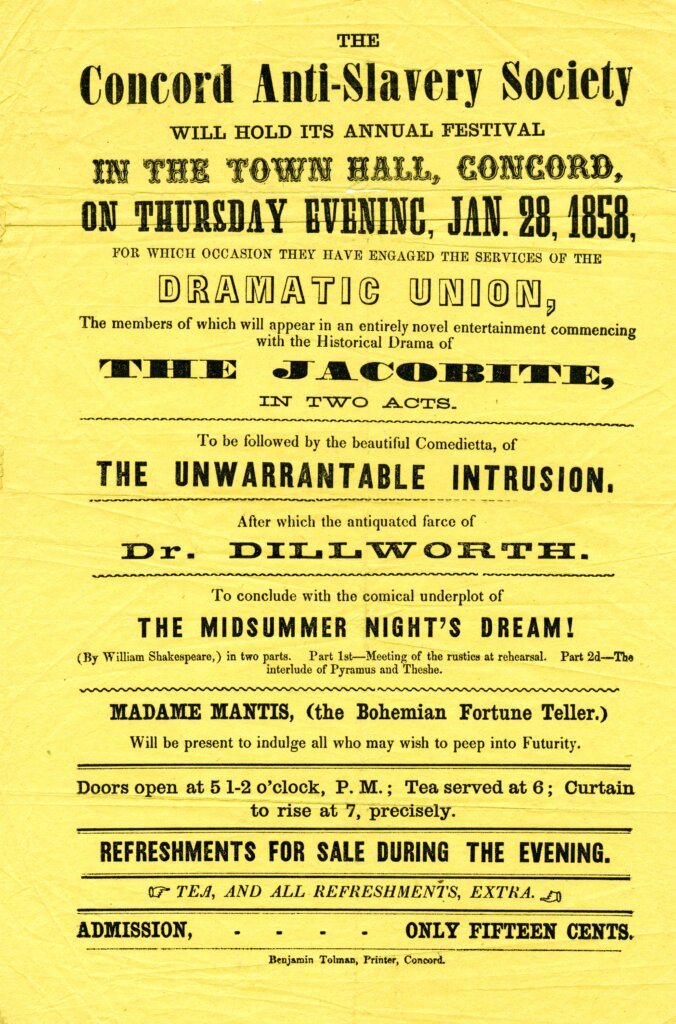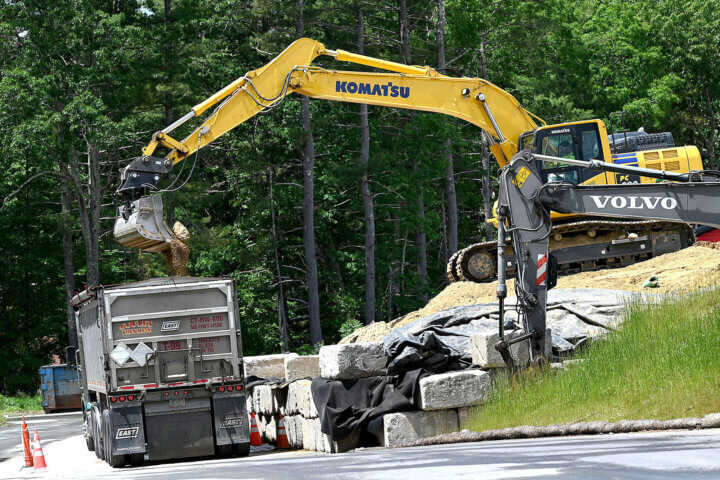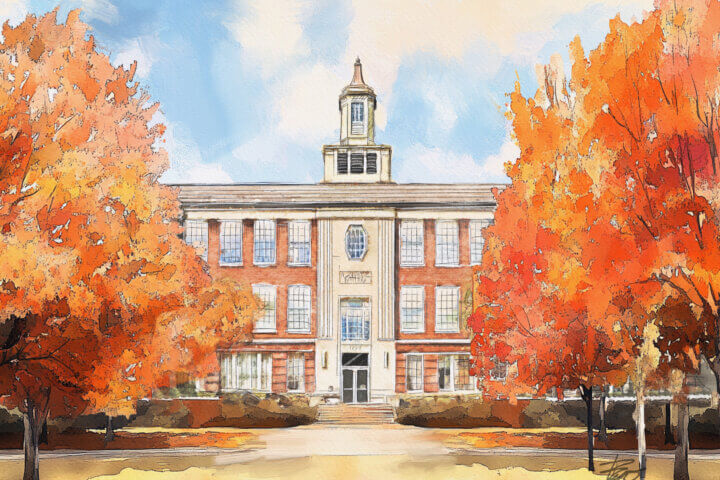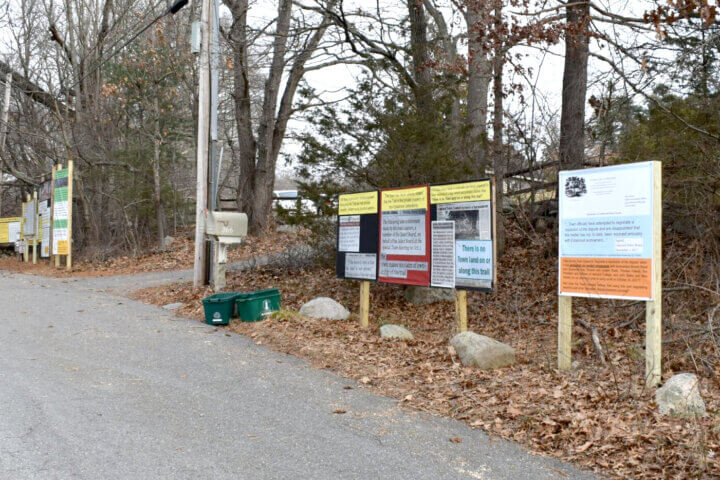By Laurie O’Neill — Laurie@concordbridge.org
Abolitionist and women’s suffrage leader Sarah Grimké, who spoke in Concord in 1837, called slavery “a violation of the natural order of things.”
At the time, Concord had 2,000 residents and was largely pro-slavery, with only a small number of the citizenry seemingly concerned with the issue.
That would soon change.
Grimké’s words spurred a diverse group of local women to join the movement to end slavery. They formed the Concord Female Anti-Slavery Society, which would become one of the most active and influential of the country’s female anti-slavery societies over the next three decades.
At a public ceremony on October 20, a flowering tree and a raised brass plaque honoring the women will be placed in Sleepy Hollow Cemetery, where many Society members are interred.
Kevin Thomas Plodzik, president of Friends of Sleepy Hollow Cemetery Inc., said his organization is “proud” to realize its commitment “to honor deservedly the Society in this meaningful way.”
A women’s grassroots movement
The Society was unique not only in that it represented an all-female grassroots effort but also because it included women of color. Susan Robbins Garrison and her daughters, Ellen and Susan, were African American. Susan’s husband, John, and her father, Caesar, were formerly enslaved.
The Anti-Slavery Society grew out of meetings held by local women in their homes for years to discuss how to help Concord’s neediest residents. They were known as the Concord Female Charitable Society.
Believing slavery to be a sin that they had a moral obligation to eliminate, 61 women attended a meeting in 1837 and renamed themselves the Concord Female Anti-Slavery Society. The organization also served as a political voice for its members at a time when women’s roles were limited and prescribed.
Among the group were prominent local women including Lidian Emerson, wife of Ralph Waldo Emerson; Mary Merrick Brooks, the Society’s main organizer, whose father had once owned slaves in North Carolina; Susan Barrett; Prudence Ward; Cynthia Dunbar Thoreau (Henry David Thoreau’s mother) and her two daughters, Sophia and Helen; Louisa May Alcott’s mother, Abigail; Ann Bigelow, and Mary Wilder, who was the Society’s first president.
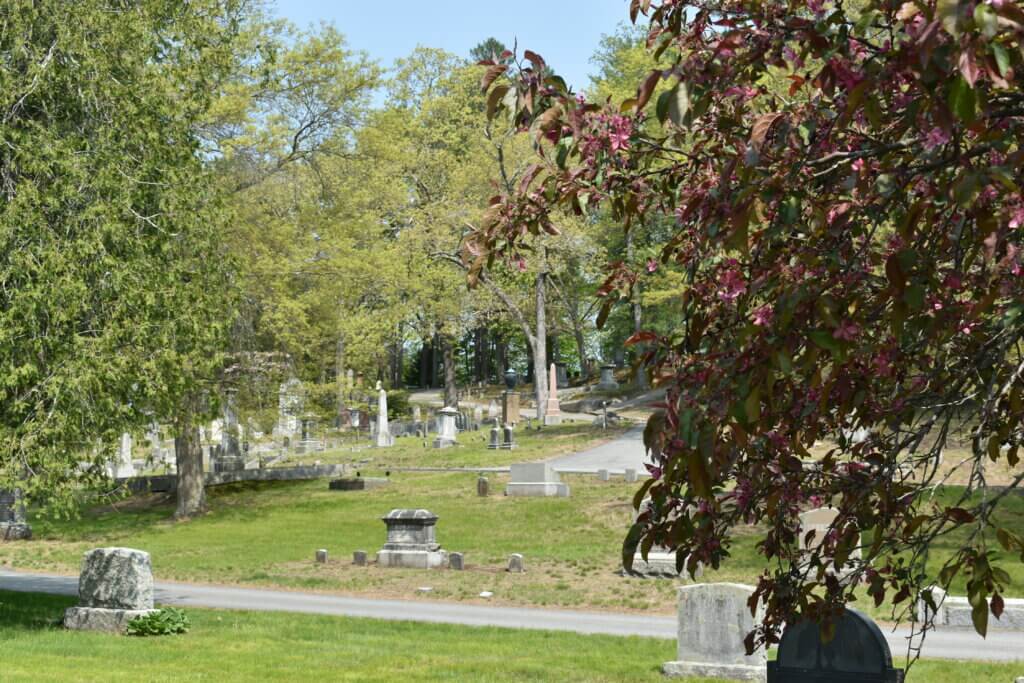
Words and deeds
Robert Gross, a local historian, has called the women “the foot soldiers of reform.” They wrote for anti-slavery newspapers, circulated petitions, raised money to fund political action, and brought renowned speakers such as Harriet Tubman and Frederick Douglass to town.
After the passage of the Fugitive Slave Act in 1850, some of the members and their families, including the Bigelows, Thoreaus, and Brookses, harbored or assisted escaped enslaved people in the Underground Railroad network.
The women urged other citizens to support the cause. Most men in Concord did not vocally support abolitionism, and some were against it. Knowing that people would listen if Ralph Waldo Emerson spoke out against slavery, the Society launched a tireless and ultimately successful campaign to win his support.
At the October 20 ceremony, guest speaker Dr. Sandra Petrulionis, distinguished professor emerita at Pennsylvania State University, will focus on the development and role of the Society. She is the author of “To Set This World Right: The Antislavery Movement in Thoreau’s Concord.” Petrulionis received the Thoreau Society Distinguished Service Medal in 2020.
Other speakers will include Jennifer Turner, executive director of The Robbins House.
More information about the 1:30 p.m. event at Sleepy Hollow Cemetery, including a site map, can be found at www.friendsofsleepyhollow.org.


